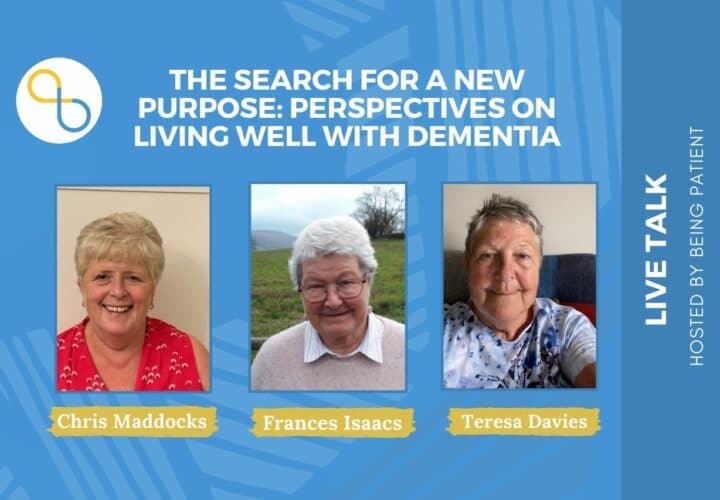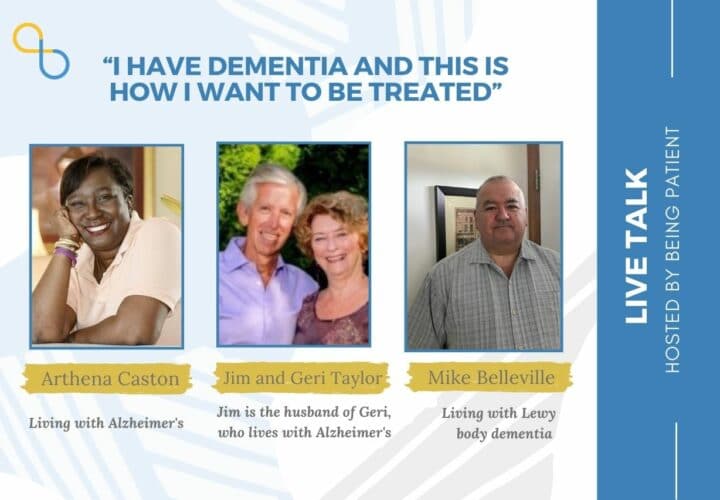Dr. Allison Reiss of New York University offers guidance on the lifestyle changes that can help boost quality of life for people living with early-stage Alzheimer's.
As part of an online conference hosted by the Alzheimer’s Foundation of America, Associate Professor of Medicine at New York University’s (NYU) Long Island School of Medicine Dr. Allison Reiss spoke recently on what people living with Alzheimer’s can do to maintain their quality of life.
Reiss, who also heads the Inflammation Laboratory at NYU Langone Hospital and serves as a member of the Alzheimer’s Foundation of America Medical, Scientific and Memory Screening Advisory Board, said that it is fully possible to lessen symptoms of Alzheimer’s or delay the onset of symptoms altogether. For the best outcome, she stressed, maintaining a healthy lifestyle is essential.
Here are five ways Reiss shared to help fortify the mind and body against Alzheimer’s symptoms and possibly delay the disease’s progression.
1. Get physical
“A healthy lifestyle helps every part of you,” Reiss told conference listeners. Not only is regular exercise good for the body — it is central to good brain health.
She advised carving out time every day for physical activities — without tripping hazards, and with proper footwear. Walking, dancing, yoga, tai chi, even simply stretching, she said, can all help keep muscles, joints and the heart healthy.
Regular exercise also helps maintain a healthy weight, she noted, which is good for overall health. On that note, a healthy diet is a key step, too.
2. Eat right
Just like regular exercise, having a well-balanced diet is key to overall good health: “Food is better medicine than so many medicines,” Reiss said, adding that in general, people should stay away from fatty and high-sodium foods in order to maintain healthy blood pressure, blood sugar, and cholesterol levels.
Research has linked high-fat and high-sugar diets to Alzheimer’s, and health conditions associated with diet — like hypertension, hypoglycemia and diabetes — are also Alzheimer’s risk factors. Keeping away from these foods helps keep the heart in tip-top shape, and that’s even more important for those with Alzheimer’s, she said, given the link between heart health and brain health.
Heart and blood vessels keep the brain nourished with the energy supply of glucose and oxygen. Smaller and more constricted blood vessels caused by poor heart health make it harder for the brain to get oxygen, she explained, and that impairs thinking: “All of the things we tell you are important for heart health are important for brain health,” Reiss said.
3. Keep the mind active
The mind is like a muscle, and the more it’s exercised, the stronger it stays, Reiss shared. Challenging the mind by learning a new language, picking up a new hobby or keeping up with friends and family are good ways to keep it stimulated. She encouraged those with Alzheimer’s or those worried about developing the disease to commit to being lifelong learners — research has shown that learning enhances our cognitive reserve, making us less vulnerable to cognitive decline — and taking up new creative pursuits — like art, writing or music, which studies show can be a dementia treatment in and of itself — helps to keep one’s thinking sharp.
4. Try to keep stress to a minimum
Managing stress and depression is crucial another step people can take to either decrease the severity of Alzheimer’s symptoms or delay its onset, according to Reiss. Stressful life events like experiencing poverty, losing a job or illness have been shown to age the brain by four years, and chronic worrying — along with conditions like anxiety and depression — can quicken the onset of cognitive decline.
Luckily, all of the health tips previously listed help with maintaining good mental health and managing stress. Spending time in the sun in order to absorb some vitamin D is another way to ensure one keeps a positive mental outlook, she noted. If getting outside several times a week isn’t an option, she recommended taking a vitamin D supplement.
5. Sleep well
Making it a habit to get a good night of six to eight hours of uninterrupted sleep does wonders for brain health and stress management, said Reiss. Losing even one night’s sleep has been shown — in small one small — to possibly increase the levels of an Alzheimer’s biomarker called tau protein, opening up questions about the extent of the impact of poor sleep on the brain.
“Strength lies in nights of peaceful slumber,” she said, borrowing a line from the film “The Sound of Music.” “I think those are words to live by.”




I know sleep is important, but I am awakened every night because of back pain. Nothing seems to prevent this. I am afraid my Alzheimer’s symptoms are getting worse because of this, but I never see advice on how to improve sleep without taking some type of sleeping pills, which are not advised for people with Alzheimer’s. Any advice?
I believe that using breathing exercises can help achieve a nights sleep also a small amount of marijuana in edible form might help? Daily exercise can help you to feel tired and keeping a regular time to retire and wake up can establish a routine that the brain can get used to, also keep the room dark.
Thank you for sharing, Samuel! Research does show that lifestyle changes including exercise, keeping a routine, getting healthy sleep can all help manage Alzheimer’s symptoms, and give the brain a boost. And marijauana is still being researched — there isn’t quite enough data yet to give a definitive answer from a scientific standpoint, but we’ve written a bit about what’s known so far here: https://www.beingpatient.com/can-cannabis-marijuana-treat-cognitive-decline/ Noting the things that make you or your loved one feel more better, healthier and more energized is great data.